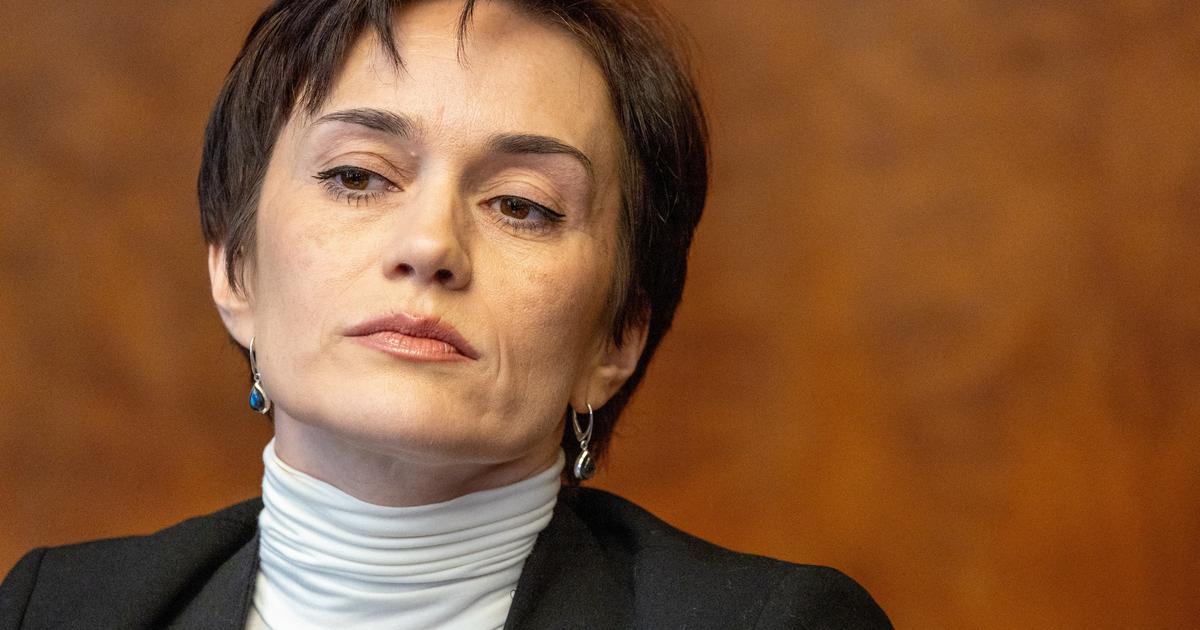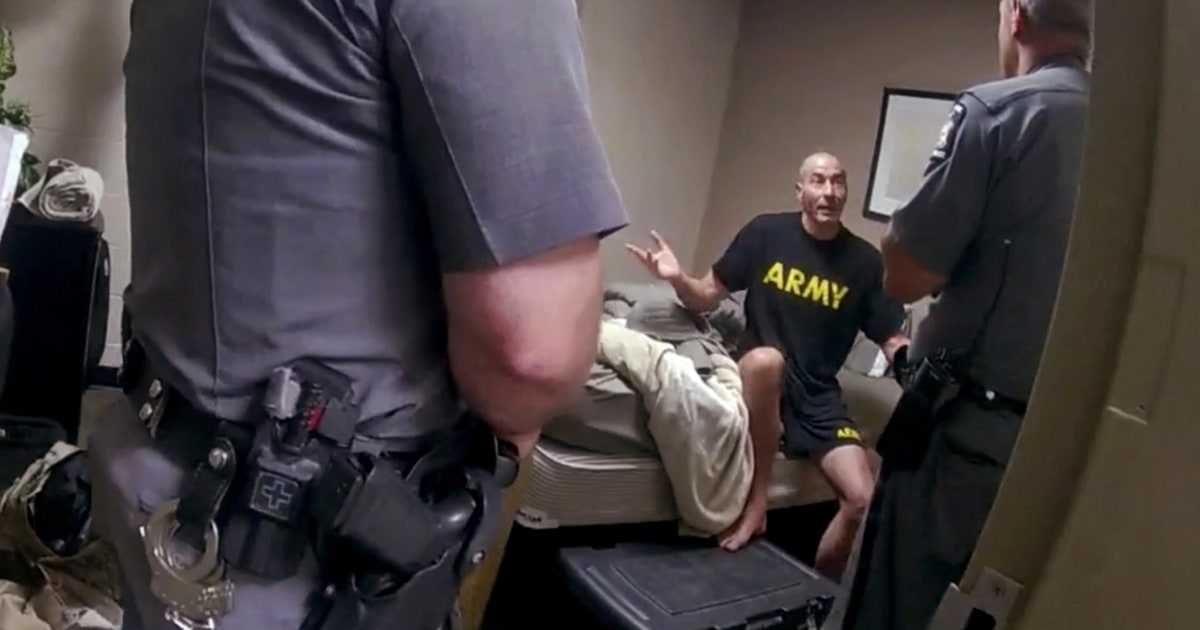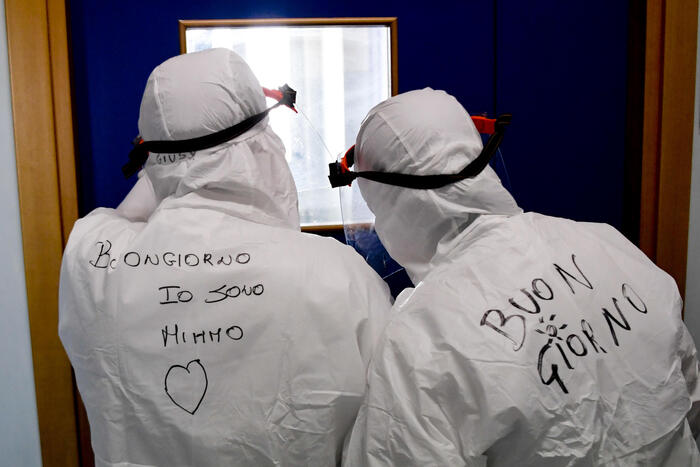Professionals from the Center for Psychological Care of the Generalitat of Catalonia last May.MASSIMILIANO MINOCRI
Vicente lives alone in a small apartment in the center of Madrid that has become his base of work and life for almost a year.
Away from his family, he longs for social relationships.
He is climbing the walls, depressed, say his colleagues.
He reflects an emotional state that, without becoming a diagnosed pathology, has put many Spanish companies on alert.
Some, such as Théa Laboratories, have decided that workers return to the offices in shifts precisely when they detect this discouragement.
“It is the first time in my 22 years of work that companies have asked me for work-related wellness projects for their workforce focused above all on mental health,” says Marta Romo, CEO of the human resources consultancy BeUp.
Organizations are seeing how the covid generates more anxiety, stress, depression, concentration problems, memory loss ... and these become lower due to anxiety and fatigue, he continues.
Gustavo Diex, director of the Nirakara Institute, confirms that his center is registering a lot of activity in the business area.
“These are Ibex companies that include, for almost the first time in their history, training focused on mental health.
There is concern in the management because they have surely seen symptoms of stress, anxiety and depression in their teams.
But probably the worst is yet to come, since the crisis that is coming will bring a lot of suffering ”.
Although there are no official data on the psychological deterioration of workers (since this type of pathologies are not included in the catalog of occupational diseases and cause casualties that are counted within the compendium of common contingencies), there is no doubt that the covid is affecting the mental state of the workforce, says Ana García de la Torre, Secretary of Occupational Health and Environment of UGT.
This expert sees a clear correlation between this deterioration caused by the fear of contagion, isolation, permanent availability and the economic crisis, among other causes, and occupational accidents.
Deaths from heart attack and stroke have risen 11% in 2020, "it is a very striking increase in a year in which activity has decreased and in which deaths have taken place during the working day," he says. who complains about the significant increase in fatal work accidents and ensures that psychosocial risks are the great pending issue in the prevention of occupational risks in Spain.
"Among other things because, without data, what cannot be seen cannot be prevented," he explains.
Symptoms
Despite this, both psychologists and human resources experts speak of a clear worsening of the emotional state of the workforce generated by the pandemic, which transcends that experienced by health workers and essential workers.
“There is a rebound in emotional fatigue because we don't see a way out of the situation.
And it begins to take its toll in the form of anxiety attacks and depressive episodes ”, indicates Guillermo Blanco Bailac, clinical psychologist, who highlights the fact that during confinement the consumption of psychotropic drugs grew by 20%.
"Psychologists perceive an effect at work that we call mental fog, with which it is difficult to find out, remember, make decisions ... and generates irascibility and sadness.
The quality of work is declining and attrition is widespread.
For this reason, we see that consultations are increasing by about 20% ”, confirms Isabel Aranda, member of the Official College of Psychology of Madrid.
In the Association of Mutual Accidents at Work (AMAT) they point out that sick leave due to mental disorders decreased in 2020 of the order of 15%, but it was as a consequence of the collapse of the health system, according to Umivale, which affected all sick leave in set.
The duration of the processes increased precisely for the same reason and this loaded with about 129 million euros the cost of the benefits of the mutuals compared to 2019. “When the aid to the self-employed and the ERTE ends, we anticipate that the cancellations will be Shoot, because now the workers are in limbo, without activity, ”predicts Sara Alonso, a psychologist at the Umivale mutual.
This horizon [together with employee surveys that show that at least half suffer more stress than before the covid] is leading companies to take action (large ones, because in small and micro-SMEs, 76% of the total in Spain, psychosocial risks are not addressed, according to the UGT representative), to start up psychological care services and to implement training to manage ongoing stress and anxiety.
Also with a view to reducing absenteeism and trying to mitigate emotional disconnection with the organization.
Banco Santander is an example of this.
As a result of the pandemic, it has reinforced its employee support services, launching psychological help for workers and their families;
talks and courses of motivation and psychological reinforcement, as well as an application called My Return for the safe return to the offices.
The bank does not offer data on its use or on the results of the health surveys it carries out.
Metro de Madrid, which is working on a comprehensive labor welfare project called Well, is also going to incorporate psychological support (currently being tendered) and training and communication programs to reduce psychosocial risks among its services.
Its director of human resources, Pilar García Carbonell, assures that "the covid is taking its toll on all of us."
The increase in absenteeism is one of the tests, he adds.
The keys to alleviating the symptoms of stress and anxiety are to structure work, deactivating notifications, rationalizing schedules and promoting a healthy lifestyle, with careful nutrition and physical exercise, as well as
mindfulness
, Diex and Romo highlight.
The BeUp expert explains that brain cycles are short, ranging between 90 and 110 minutes and you can only maintain sustained attention for 15 minutes and recommends giving prompts to rest and plan the task before starting it.
For Isabel Aranda, the basis is to use strategies to cope with situations of insecurity, since people tend to create catastrophic thoughts, and these strategies help to relativize them, as well as to paralyze certain negative emotions.
Anxiety and depression represent an expense of 23,000 million euros for the public health system and with only 27.36 euros per patient and year and seven therapy sessions, instead of drugs, 70% of those affected stop having symptoms, which shows an efficacy three times higher than the usual treatment, according to the
Psychology in Primary Care
study
, by Psicofundación.
Although scientific evidence shows that the treatment for these problems is psychological techniques, in Spain 39% of people diagnosed with anxiety disorder in the last 12 months have not received any treatment and only 0.9% have received therapy without drugs.
On the other hand, Spain is the second country with the highest consumption of tranquilizers in the world, despite their lack of efficacy, according to scientific evidence, and their addictive power, adds the aforementioned study.
Beware conspiracy ideas
The professor of psychopathology at the Complutense University of Madrid, Carmelo Vázquez, is investigating post-traumatic personal growth derived from covid by means of periodic measurements among 2,000 people.
Their conclusions are that between 75% and 80% of people are emotionally resilient.
While the rest have significant symptoms of depression, stress and trauma, which persist longer than during other past catastrophes or terrorist acts.
What leads to such symptoms, he says, is anxiety about death and ideas of suspicion, conspiratorial ideas that persecute a part of the population and that politicians encourage a lot.
"The cainism that exists in this country has a great impact on the mental health of the people. Especially among the most vulnerable and less informed, who can reach paranoia. The conspiracy is enormously harmful," he says.
60% of people emerge stronger from the crisis.
According to Vázquez, the best antidote to achieve this is optimism or a greater orientation towards the future in conjunction with bonding with others.

/cloudfront-eu-central-1.images.arcpublishing.com/prisa/7L2CPWZ2U5DIJJKZFYK32B7UPI.jpg)













